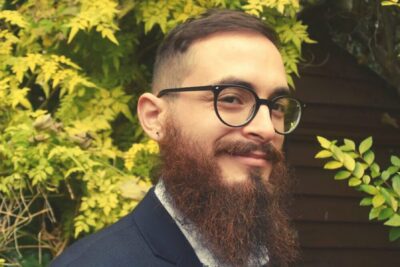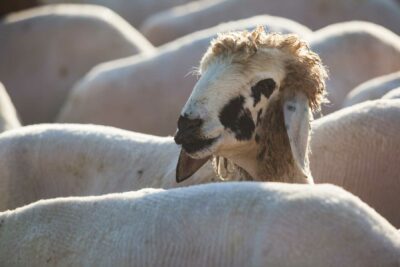A common accusation amongst meat eaters against vegans, is that vegans can’t possibly understand what farmers endure or the scope of their activities. The issue with this is that they assume vegans must only come from cities or towns, without firsthand experience in raising, tending, and rearing animals.
But like many other vegans, I do have that firsthand experience.
By Simon Plazolles-Hayes
My name is Simon Plazolles-Hayes, and when I was a child, my family moved to the countryside and started our own farm. We originally started with goats, llamas, and chickens, but over the years we bought sheep and ducks, and the barn cats to tend to the mice. Everything was built from scratch, from the barn to the fenced pasture I built alongside my dad.
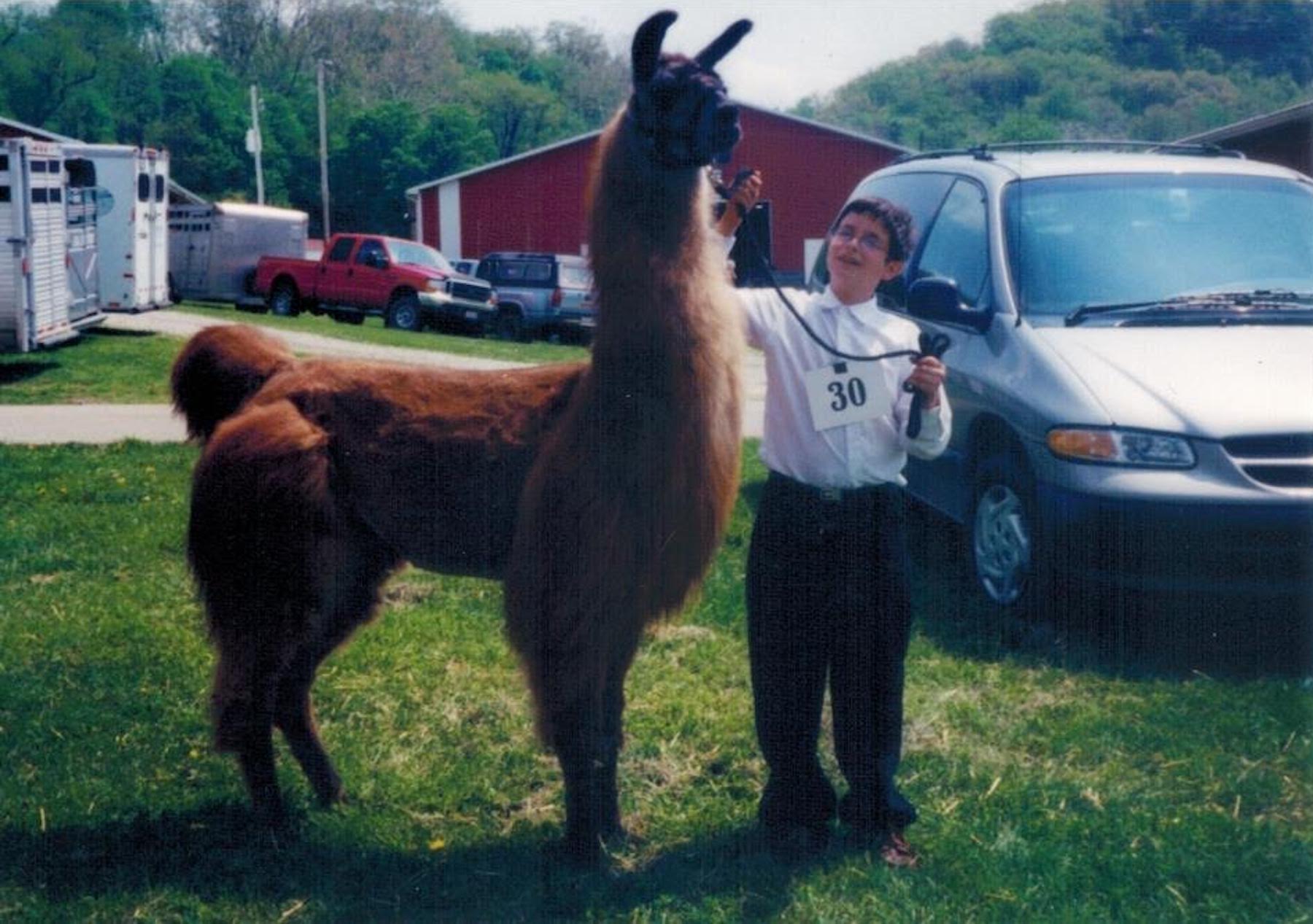
None of us had generational farming knowledge, but we immersed ourselves in this new lifestyle. I woke up early to feed and water the animals, milk the goats, and prep for school, later tending to the animals at night. We read books on the subject, attended Farm Bureau meetings, and joined the agricultural club 4-H, where I took courses on shooting sports, show chickens, llamas, vegetable gardening, and market lambs.
I saw my market lamb as an investment towards a rewarding end, the cash awarded to me by the highest bidder. For a 13-year-old, $300+ dollars was the jackpot, and I wanted to win. But even successful trades can come at a high price.
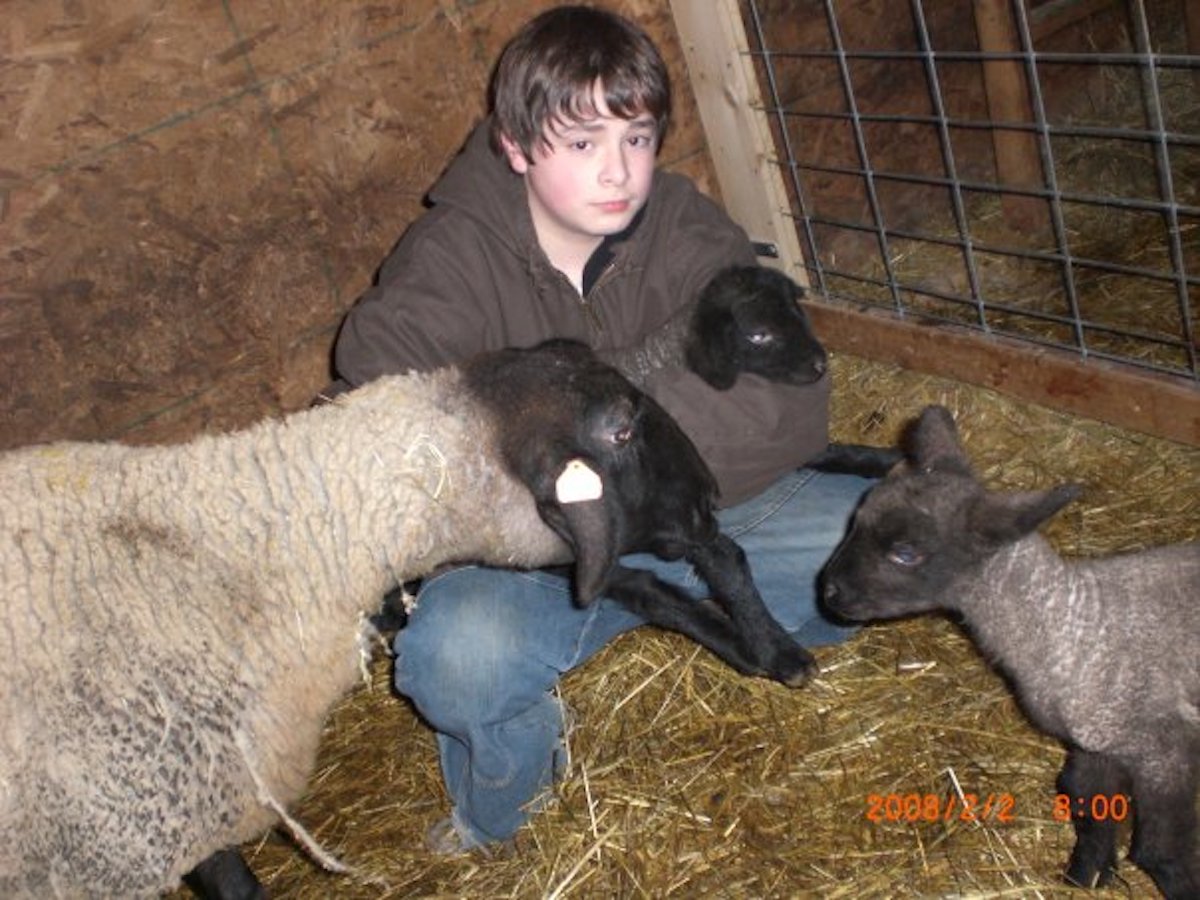
There is an unofficial tradition for children who sell market animals. You take the time to say goodbye to your animal before the men come to haul him off onto the trailer with the other screaming animals. A sinking realization begins to dawn on the 4-Her, and feelings of grief, guilt, and loss set in. Farmers spend more time with their animals than anyone. We see them in the morning, we say goodbye to them at night, and we rush to their aid when they are injured or need medical care. Yet for those who spend time claiming to empathize and care for their animals, it all boils down to that one deal—protecting and enriching an animal for the sole purpose of killing them.
Farming animals has always been and will always be rife with violence—it is inherent in its very definition. While all humans are capable of compassion and care, there can be no doubt about the extent of violence prevalent on a farm of any scale, from tiny farms like ours to the predominant industrial-level farms. From multinational intensive animal farms to mom-and-pop, the same cruel practices and disrespect for animal rights are rife.
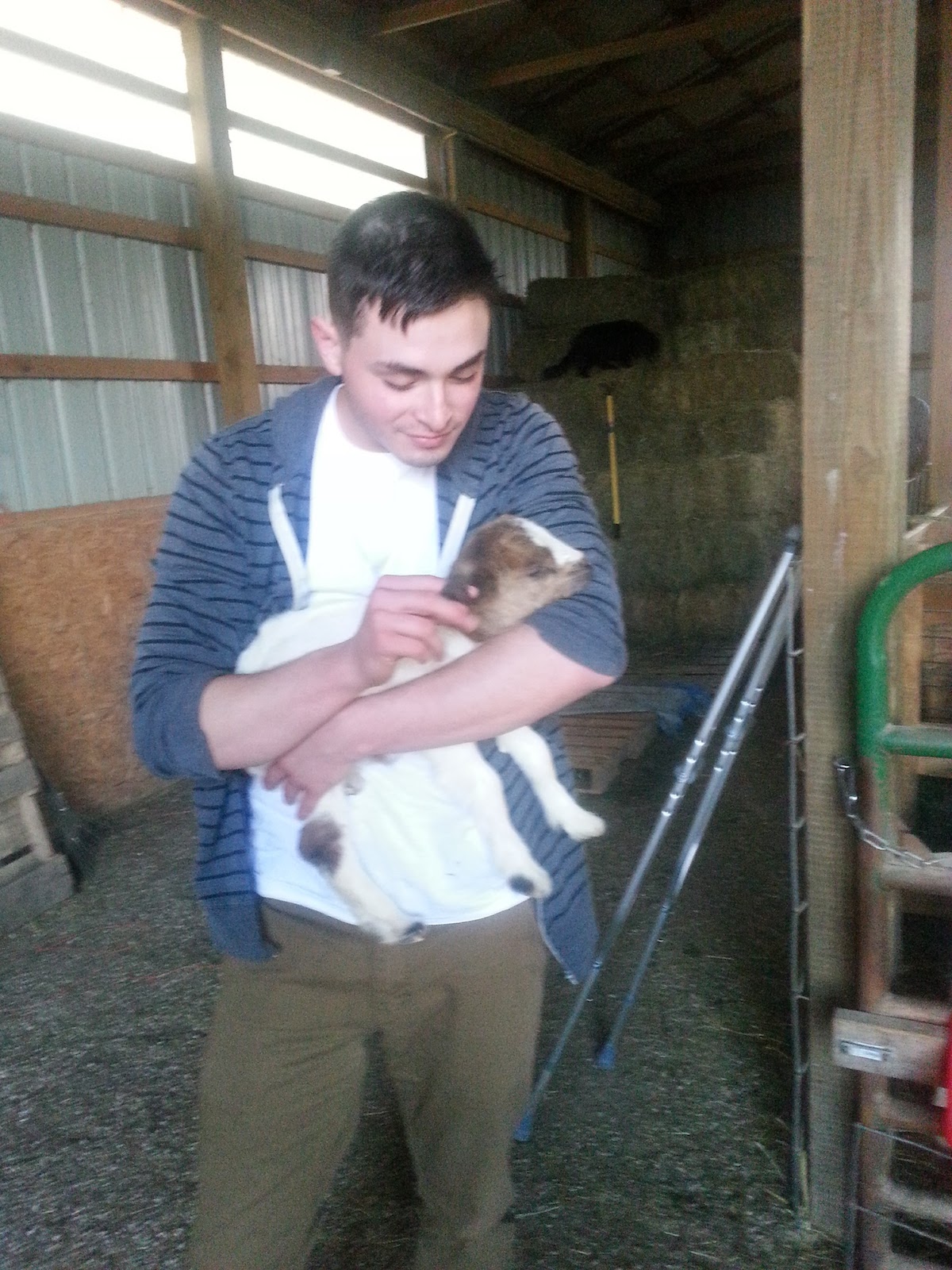
Take an example from our farm. Goats would have their natural horns burned down to an ashen circle using a dehorner, a device that heats to 1000 Fahrenheit, mere weeks after birth. Scrotums on animals destined for meat were wrapped with a rubber band, slowly cutting off circulation in a painful and prolonged castration. I have a distinct and stinging memory of a farmhand volunteering to neuter a cat. Without the use of anaesthetic, he stuffed him face first into a boot, and used his hip knife to castrate him, despite the cat’s terrified pain yowls.
Many people defend farming animals, claiming these actions serve some more significant meaning. But as a former farmer that tried to justify their treatment of animals, I can definitively say that the answer is a resounding no. Farming animals is a ruthless process for animals from the moment of conception through forced breeding, to the moment they are introduced to the slaughterhouse. Slaughterhouse workers callously and often clumsily slits their thrashing victims’ throats, seemingly immune to the terrifyingly unrelatable levels of fear and prolonged suffering those sentient beings experience.
Farming is not easy, and farmers do what they can to separate their emotions from the process. It is a social conditioning, with parents comforting their crying kids and reassuring them with the lesson that “this is normal, natural, and right.” But nuts to that. There is dignity in animal farming, but certainly not for the animals. There is no great goal, it is cruel, senseless, violent, wholly unsustainable, and completely replaceable with healthy, sustainable, and cruelty-free vegan alternatives.
It took me until I was in the US Army to reflect and consider my actions towards the animals I farmed, and unable to condone nor defend my actions, I chose to change. While I no longer farm animals, I think it is vital for former farmers to speak out against the injustices we committed and use our industry knowledge and experience to debate current farmers. The vegan community is diverse and includes former farmers, hunters, anglers, and slaughterhouse workers.
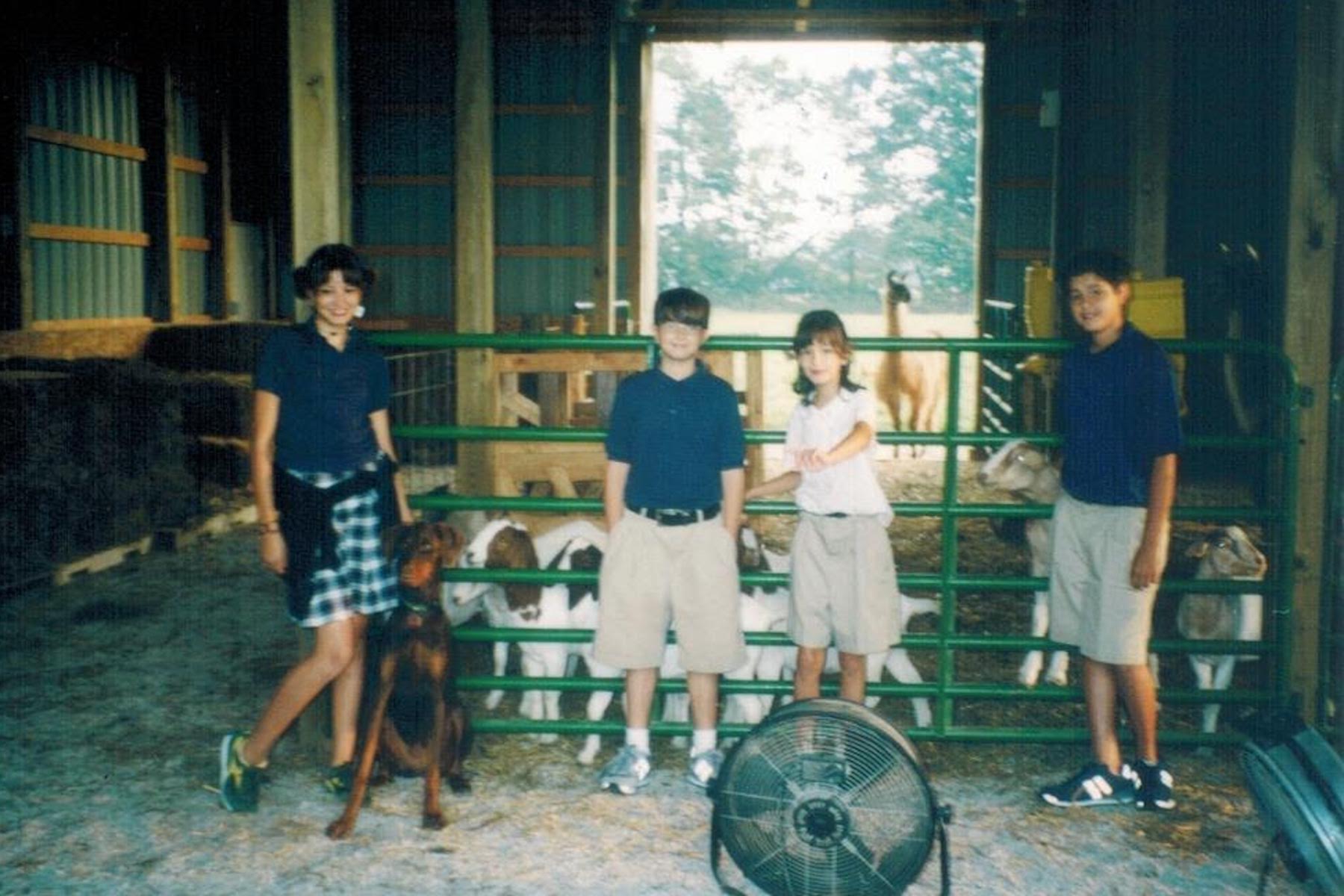
It may have taken me years to see the light and change my life from farmer to vegan, and evolve to advocate louder for their rights but it was possible. We all can change, but we must face the cold hard fact that this senseless cruelty and violence is unjust and unwarranted. Deep down, farmers know this because we have seen the animals’ fear and their desire to live. It is never too late to make a positive change for them.
So if you are reading this and tend to baulk at vegan activists or doubt if they can relate to agricultural life, know that any vegan activist you dismiss may know way more than you do on raising animals on farms.
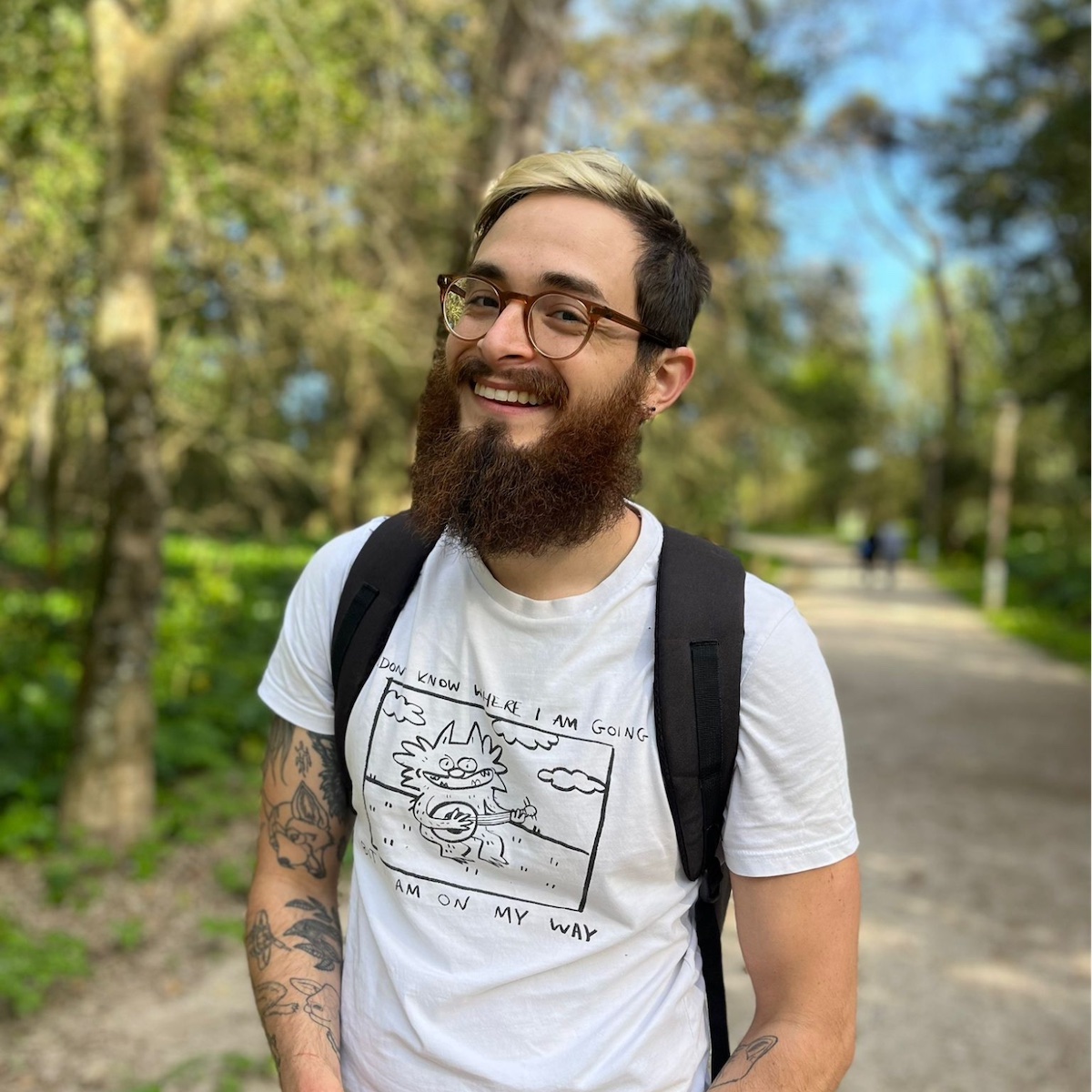
Simon Plazolles-Hayes is a former farmer turned animal rights advocate, and the Social Media Coordinator for GenV.
